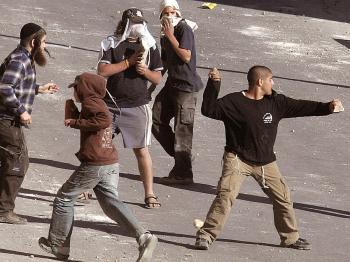ASHKELON—After the first Grad rocket fell on the city of Guedera, Israelis realized that one million Israeli citizens were now threatened by these longer-range weapons. Two hundred thousand Israeli children were kept out of school for an additional day, after the longer-range missiles began falling.
Epoch Times reporters visited Ashkelon and Sderot, two communities bearing the brunt of Hamas’ rocket attacks.
Constant Emergency in Barzilai Hospital
Barzilai hospital in Ashkelon is in a state of emergency 24 hours a day. Thirty-six soldiers have been sent here for treatment since the start of the Israel Defense Forces’ (IDF) ground campaign.
Ten days ago, 80 percent of the patients were sent home or to other hospitals farther from border and the hospital is constantly on alert for rocket attacks. Barzilai Hospital is the Israeli medical facility closest to the front lines.
The Pediatric and Geriatric Departments were moved to an air-raid shelter: “We have only 15 seconds from the alert to reach the shelter, and it is impossible to manage with children and elderly people” said hospital spokeswoman Lea Malul.
Two children from Gaza are hospitalized here; they would be sent home, but the border is closed. The hospital usually cares for ten or fifteen children from Gaza each week, said Dr. Menahem Shlezinger, head of the Pediatric Department.
“We used to have good contacts with Shifa hospital’s physicians [a hospital in Gaza.] They are professionals, but now it’s too much for them. When all this is finished, we expect that many children from Gaza will be sent to us.”
Majidah, a Gaza resident, was in the hospital watching over her grandson, who was in a coma when admitted. Now that he had recovered, she was very grateful to be in the hospital and not at home in Gaza.



